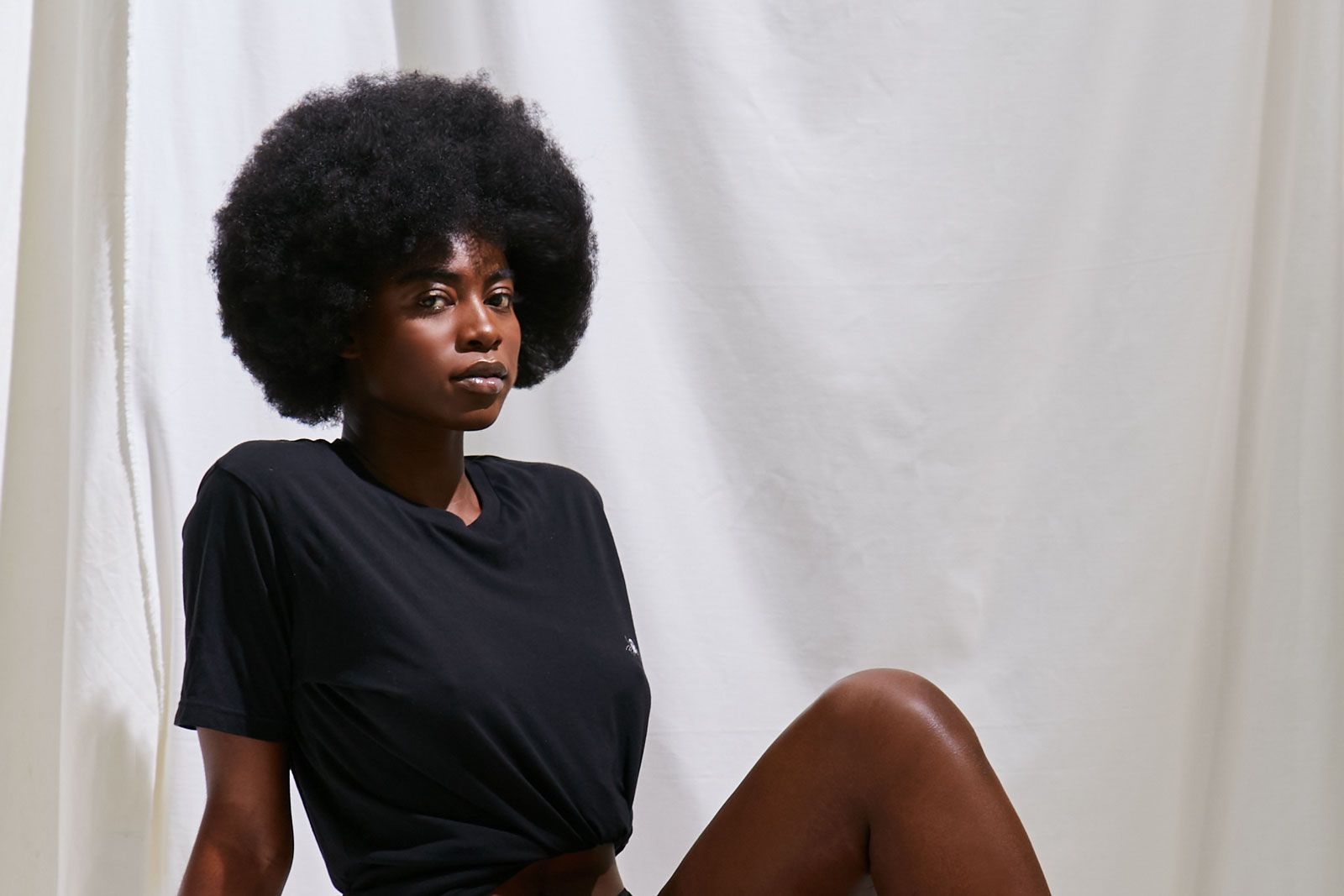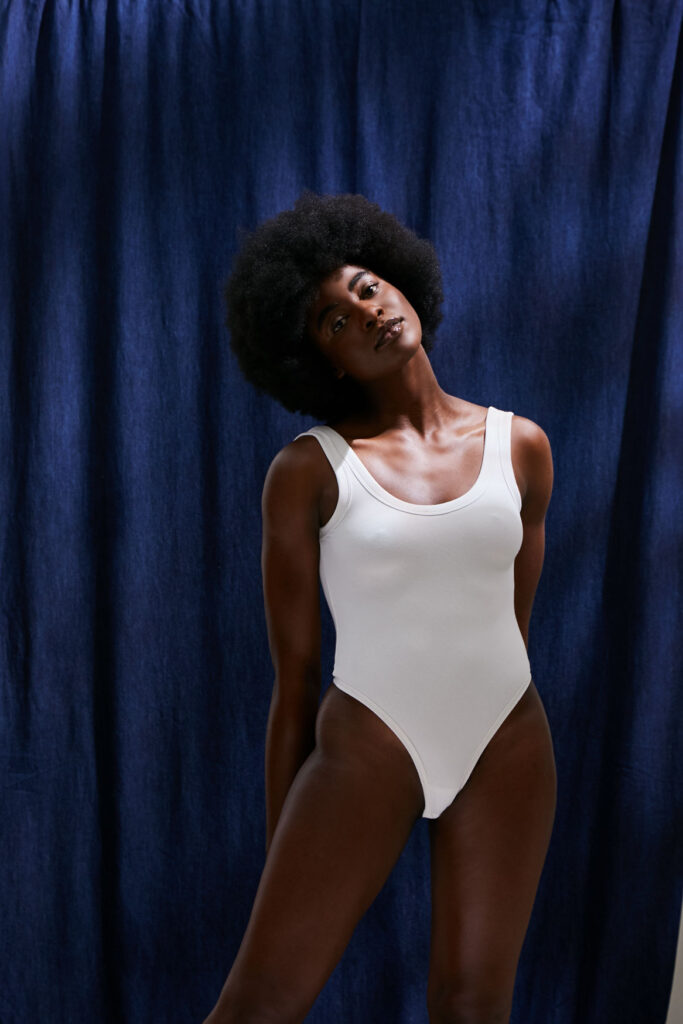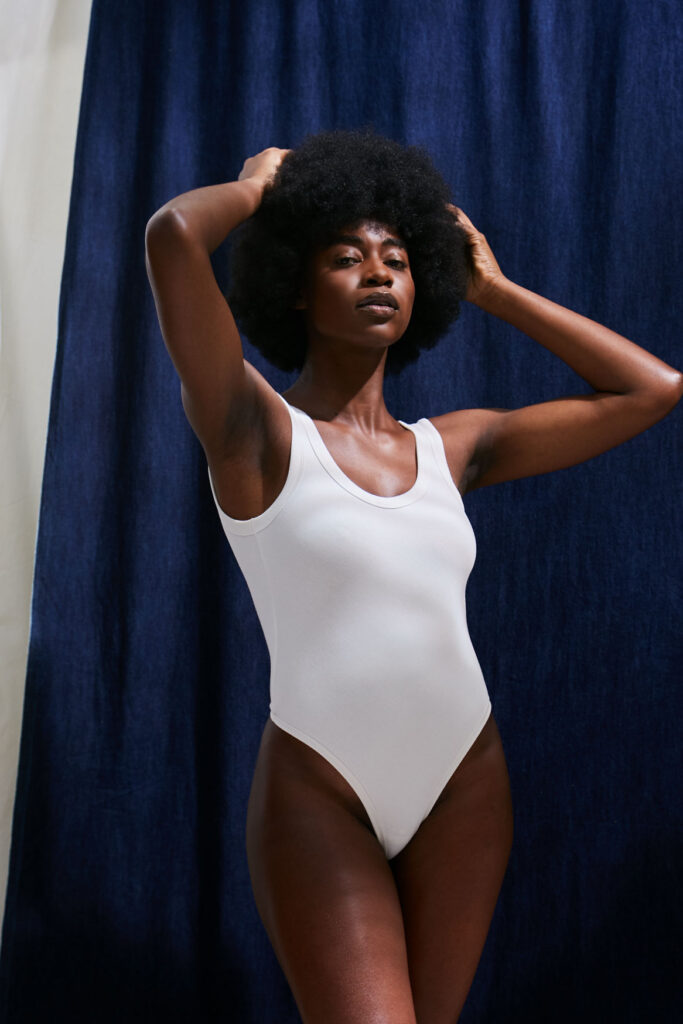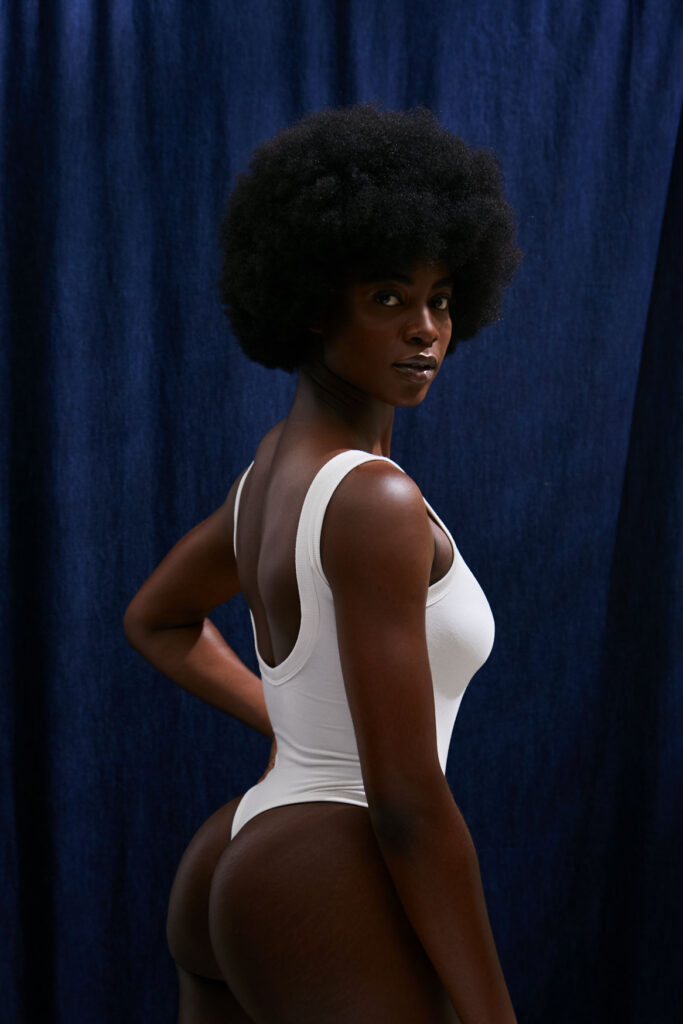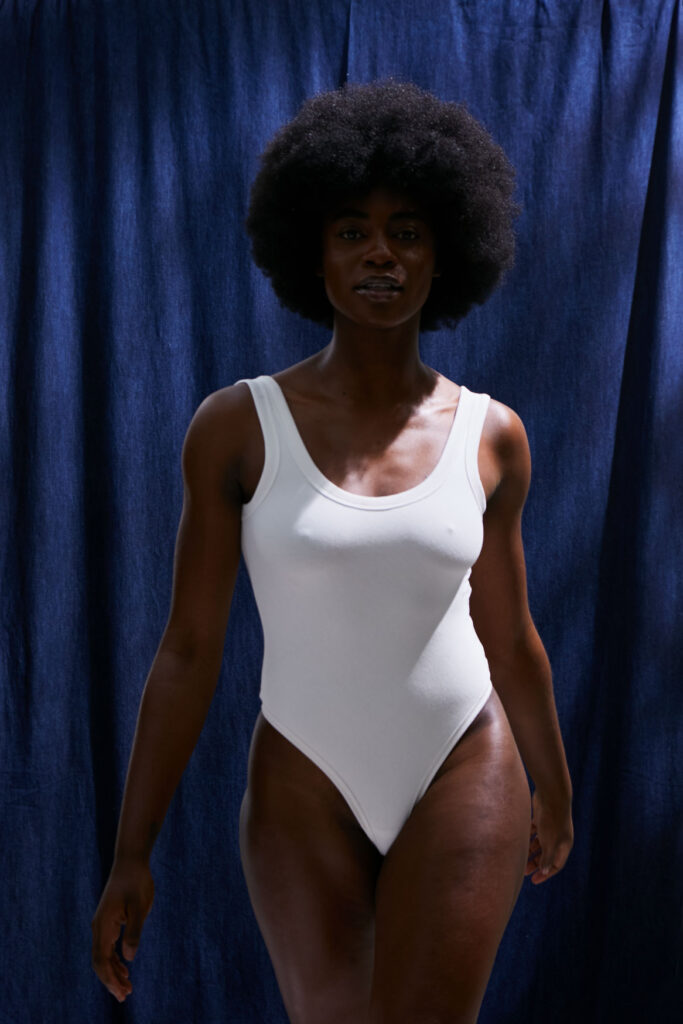Representation matters. In a time of intense change, we celebrate identity and culture through the eyes of our model Trish Boakye (she/her).
Models rarely get to influence the artistic and creative direction of a shoot, much less tell their own story. For Black women, in particular, their aesthetic is used by brands to evoke ‘urban’ cool, the sassy friend, the no-holes-in-her-armour strength synonymous with being Black…
That’s why we collaborated with Trish on the creative and art direction of the back cover of Journal 001. We workshopped and created moodboards to enable Trish to tell her story, because no one should tell it but her.
This shoot celebrates Trish, and Black women everywhere, whose multifaceted stories are there to be heard – if you take the time to listen.
TQTB: What story did you want to tell through this shoot, and why?
Trish Boakye: I feel my story is one that’s shared by a lot of Black people. Now, we see a lot of Black people on the front line, but usually restricted to certain fields, and there are limits to the level of success we can reach.
Personally this lack of representation has affected the way I identify as a Black person because it’s so easy to put yourself in the box that’s created for you. When you only see people like you in certain situations and places, you can feel like you don’t belong. But that’s the complete opposite of my story and I want to show other Black people that it’s OK to not conform to what society wants you to do.
I grew up in a white neighborhood, while at home my Ghanaian culture was all I knew. I fell in love with Asian cultures, especially Japanese culture, because the way of life resonates strongly with me. I discovered that culture isn’t fixed – it’s not a box set of rules, rather it’s something capable of taking many forms that suit you. As a Black person, I don’t have to abandon my heritage to find my true self. I appreciate my roots because they show me where I’m from but I know that they don’t define what I want to become.
Culture isn’t fixed. If we treat it respectfully, it enriches us and broadens how we define our Blackness. You are you first and foremost – before you identify yourself with anything else. If something resonates with you as a person, that’s all that matters.
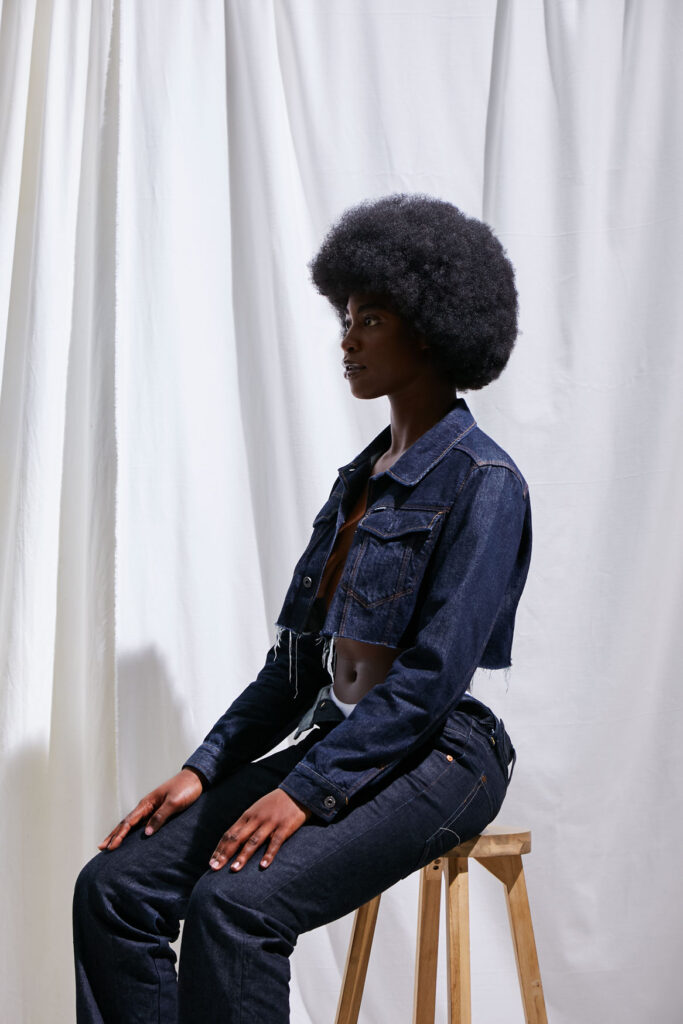
TQTB: How was it to be directly involved in the creative process?
TB: It was really cool – to sit with you guys and hear why you wanted to do it. It links with my story too, because Black faces and bodies are actual human beings, not props. We’re not just storylines, we’re not always sad and depressed because of racism. We have our own stories and experiences to tell, and it’s beautiful to combine it with a creative process because it immediately makes the entire process unique, relatable and authentic.
More people should do this – you’d see much more variety and creativity in shoots because there’s a different energy and outcome as a result. For me, it was really dope to have control over that.
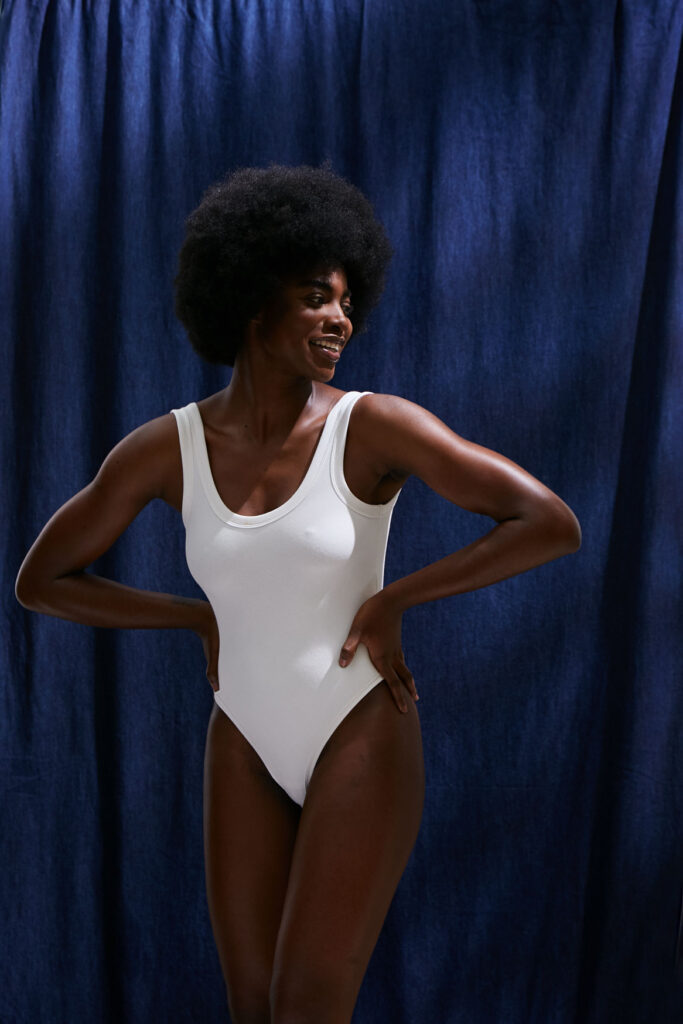
TQTB: Owning your image comes from growth and self acceptance – you describe this as finding your own shade of Black. What elements of this shoot exemplify this for you?
TB: For me, it was really about letting people into my vibe. I wanted it to be very simplistic and raw, with a strong sense of vulnerability and ease. If you see the back cover before reading this interview, you’d probably just think ‘OK, these are cool pictures’. Combined with the story though, how you look at the pictures the next time will change. That’s important – the subject comes more to life and feels way more authentic.
Wearing my natural hair out was a very important element for me. I’ve been natural for about six years now – it seems like something so small but for Black women it’s a huge statement. I normally hate my hair because it takes up so much space. But I also think that’s why I love her. I think for women in general, and Black women as well, we’re being told to take up more space. We should stop fighting it and take up that space because we’re amazing human beings. I hope that people feel that connection and confidence being channelled. Confidence is something everyone should feel.
TQTB: Freedom, vulnerability and acceptance were important themes for you to include. Why?
TB: To be honest, when I started my whole self-discovery journey, I really didn’t know that I was on a journey until I was already deep into it. For a long time, I lacked freedom to just be my complete self.
I code switch all the time. Some of it is down to me growing up in a white neighbourhood. I was the only Black girl in my year at high school – I look back now and wonder how it was so normal for me then to have no other Black kids around. I’d assess a room and format myself to fit the situation, or end up being too loud or whatever… Freedom is definitely important because it allows me to be a hundred percent myself, all the time. If you don’t fuck with it, that’s a you issue, not a me problem.
Accepting certain things about myself comes from a combination of internal and external factors. My family, say, has a certain vision of how they want me to grow up based on our traditions. Then the outside world, which is mainly white, introduces you to other things, ways of thinking and behaviour, everything from music to work. You shouldn’t blame yourself for liking anything just because others say you’re not supposed to or it’s not very common.
Finding acceptance and showing vulnerability are important because it’s a touch of realness and humanity that everyone can relate to whatever your background. The journey to get there requires that you spend a lot of time by yourself, to get to know yourself on a deeper level. It makes you more open to the people around you, more aware of the environment you put yourself in – and that’s really a direct reflection of who you are.
Everyone can appreciate that touch of realness, that vulnerability to show someone who’s open and comfortable enough to share a delicate and intimate part of their life. That vulnerability connects us all in the end.
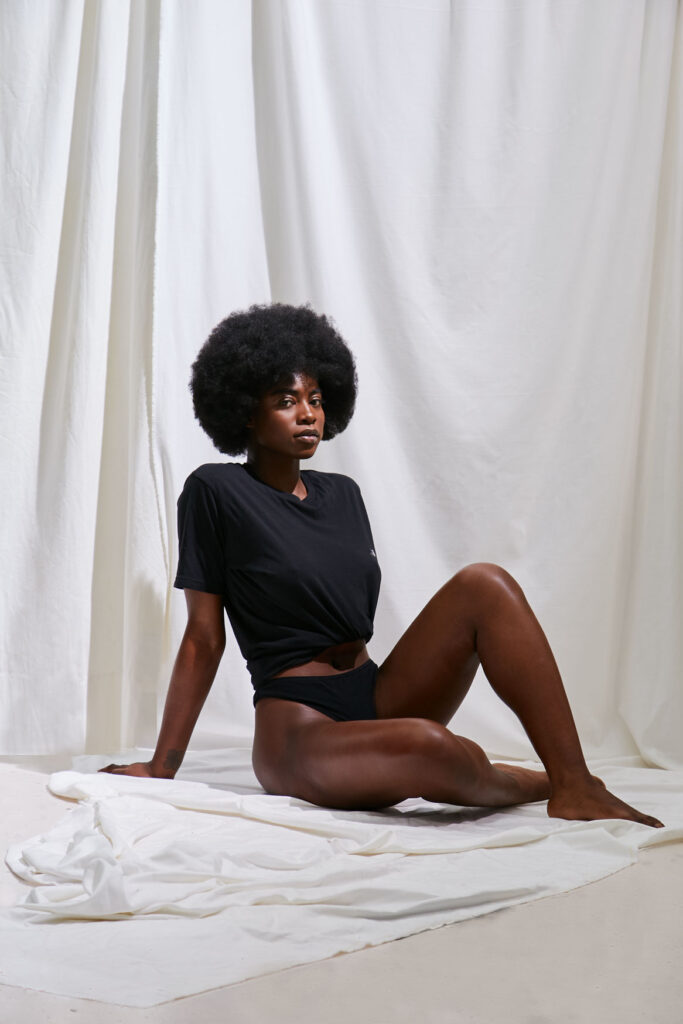
TQTB: Finally, what affirmation sums up this experience for you?
TB: Normally I really hate affirmations, I find them so fucking corny lol! But in some situations, you need to give yourself a pep talk so I’ll think of it that way. My main affirmation is not only for me but for everyone reading this.
It doesn’t matter if you’re Black, white, whatever your background, whatever you’re going through – you are so much more than people could ever see.
There’s only so much that people can see and there’s only so much that you allow them to see. Even if they think they know you, you are always so much more. There’s no need to conform to the format that people place on you.
Periodt, pooh.
Tweet Trish: @heytrishhey
IMAGE CREDITS:
Photography: Obi Mgbado
Retouching: Omar Rosalina
Lighting: Obi Mgbado
Art direction: Trish Boakye, Colinda Bijsterveld
Creative direction: Trish Boakye
Wardrobe: Advance Denim, G-Star, UNIQLO
Hair and make-up: Charlotte van Beusekom
Production manager: Marie-Anne Leuty
Location: The Brouwersgracht Studio

